I have some code
captureSession = AVCaptureSession()
captureSession!.sessionPreset = AVCaptureSessionPresetPhoto
let backCamera = AVCaptureDevice.defaultDevice(withMediaType: AVMediaTypeVideo) etc...
Of course, this correctly does not work on simulator. No problem.
If you do run it on a simulator, it correctly crashes right here
captureSession!.sessionPreset = AVCaptureSessionPresetPhoto
like this
As a curiosity, how would you "catch" that crash?
If I try to "try" it in different ways,
try captureSession!.sessionPreset = AVCaptureSessionPresetPhoto
I only get...
/Users/jpm/Desktop/development/-/classes/CameraPlane.swift:67:3: No calls to throwing functions occur within 'try' expression
How is it you wrap and catch that type of call?
Just BTW for anyone specifically dealing with this annoyance in the Camera,
func cameraBegin()
{
captureSession = AVCaptureSession()
if ( AVCaptureDevice.devices().count == 0 )
{
print("Running on simulator.")
return
}
...
